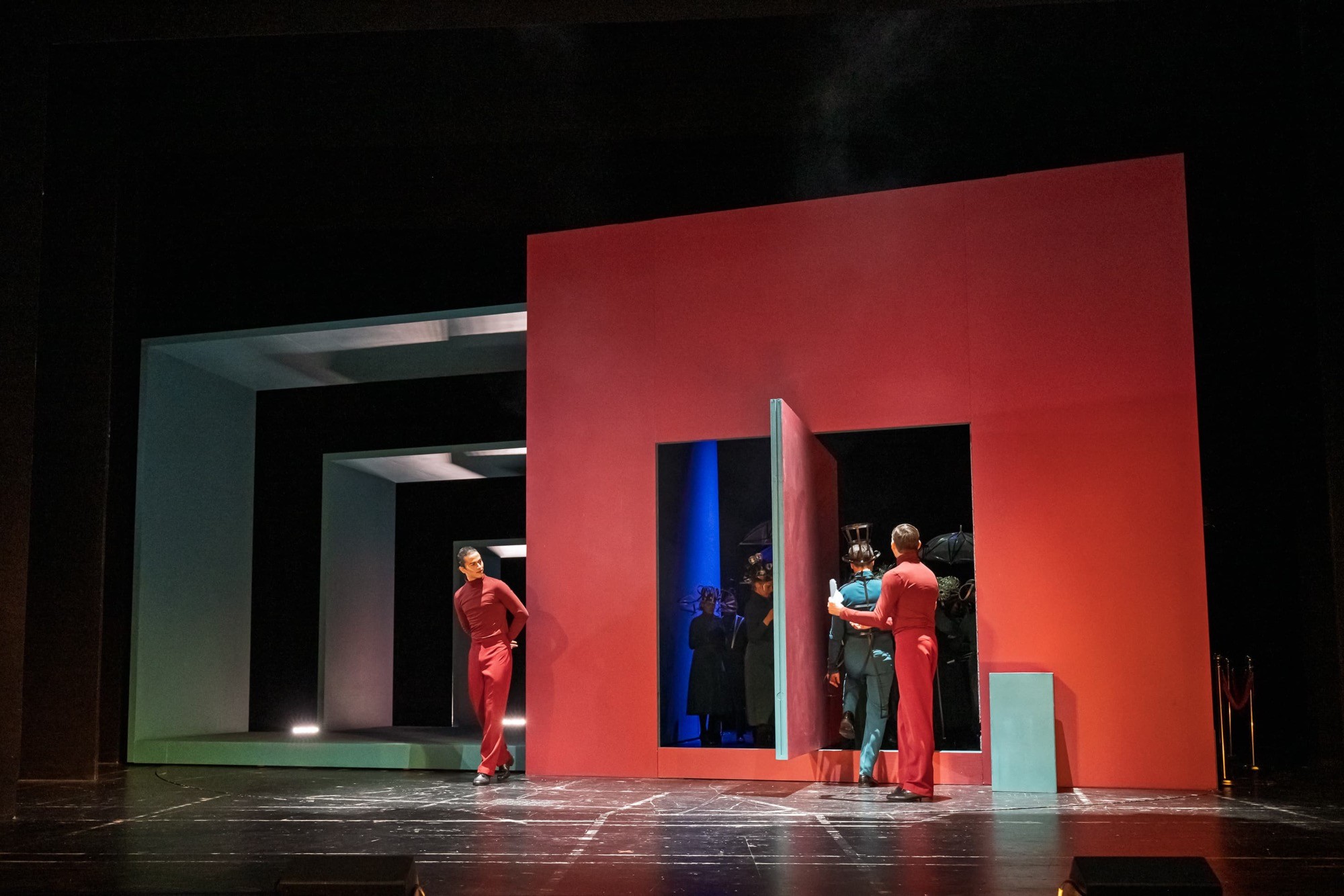- Frederick Loewe
Composer - Alan Jay Lerner
Librettist - Robert Gilbert
German translation
Company – Theatre – Date
- Theater Orchester Neubrandenburg Neustrelitz
- Opernchor der TOG
- Deutsche Tanzkompanie
- Neubrandenburger Philharmonie
- Neustrelitz Landestheater
- October 2025–May 2026
Creatives
- Ella Marchment
Director - Maura Ballard
Assistant Director - Kenichiro Kojima
Conductor - Philomena Strack
Set Designer - Sascha Thomsen
Costume Designer - Adam Haigh
Choreographer - Joseph Feigl
Chorus Director - Bettina Bartz, Martin von Bargen
Dramaturges
Cast
- Laura Scherwitzl
Eliza Doolittle - Robert Merwald
Prof. Henry Higgins - Ryszard Kalus
Oberst Pickering - Ulrich Burdock Alfred P. Doolittle
- Andrés Felipe Orozco
Freddy Eynsford-Hill - Sylke Urbanek
Mrs Pearce - Gabriele Thomann
Mrs Higgins - Marin Silni
Harry - Andreas Hartig
Jamie - Constanze Neuweg
Little Eliza
Programme
Reviews
Nordkurier
Enchanting … Wonderful … The ensemble can look forward to a lot of applause, a [seven-minute] standing ovation at the premiere
Strelitzius
Masterpiece: Musical premiere of “My Fair Lady” rightly celebrated at the Landestheater Neustrelitz … Great artistic quality
Kultura-Extra
Ella Marchment and her team have produced a radically uncluttered show … The directing is interesting and never overloaded, leaving a lot of space for the actors on the stage … Exemplary … Extremely elegant … Neustrelitz cheers
Musical Today
A remarkable concept, consistently realized from the first moment … Wildly exuberant … Unbeatable … The audience loudly celebrates this exciting staging
Synopsis
My Fair Lady is a musical adaptation of George Bernard Shaw’s play Pygmalion, with music by Frederick Loewe and lyrics by Alan Jay Lerner. Originally in early twentieth-century London, the story follows Eliza Doolittle, a poor Cockney flower girl with a strong accent that marks her lower-class status. She meets Professor Henry Higgins, a phonetics expert who boasts that he can transform any woman into a refined lady simply by teaching her to speak properly. Intrigued by the challenge, Higgins makes a bet with his friend Colonel Pickering that he can pass Eliza off as a duchess within six months.
Eliza undergoes rigorous speech lessons and personal refinement under Higgins’s demanding instruction. After months of hard work, she successfully impresses London society at a high-class ball, where no one suspects her humble origins. However, Eliza soon realizes that while she has gained manners and speech, she has lost her independence and sense of belonging—neither fully part of the upper class nor her old world. Higgins, proud of his achievement, fails to acknowledge her feelings or her growth as a person.
In the end, Eliza asserts her independence, challenging Higgins’s arrogance and forcing him to confront his own emotions. My Fair Lady explores themes of identity, class, transformation, and the human need for recognition and dignity, wrapped in witty dialogue and memorable songs like ‘I Could Have Danced All Night’ and ‘The Rain in Spain‘.
Photos




















All photos (C) Jörg Metzner
